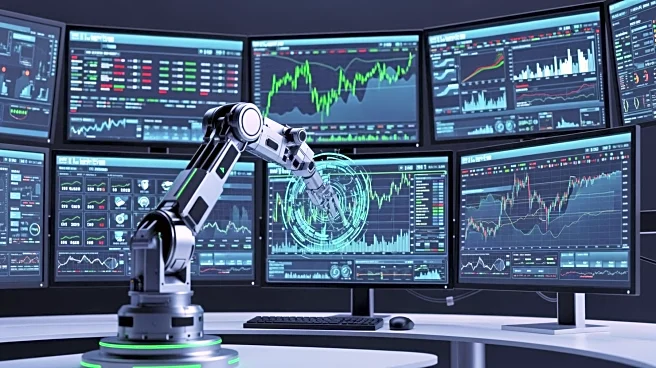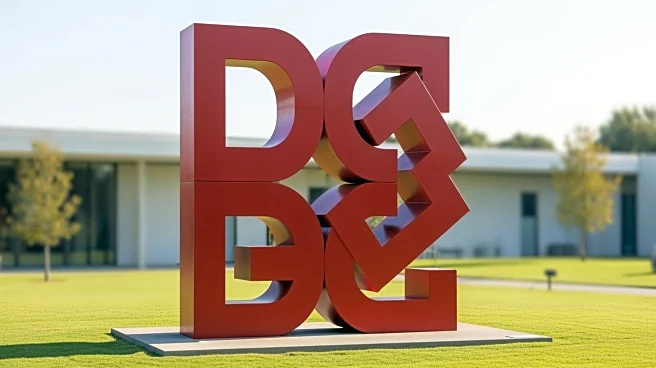What's Happening?
The forex trading landscape is undergoing a significant transformation with the integration of artificial intelligence (AI) into trading systems. AI-powered copy trading platforms are increasingly being
adopted, allowing even non-technical traders to engage in automated trading. These platforms utilize advanced algorithms to analyze market sentiment, filter noise, and execute trades with precision. According to a 2025 Statista projection, over 65% of global retail forex trades are now executed through algorithmic or automated systems. The evolution from traditional manual trading to AI-driven systems marks a shift towards more adaptive and intelligent trading strategies. These systems not only replicate trades but also learn from trader behaviors, adjusting strategies based on performance and market conditions.
Why It's Important?
The rise of AI in forex trading is significant as it democratizes access to sophisticated trading strategies, previously reserved for professional traders. By integrating AI, traders can benefit from enhanced decision-making capabilities, reducing emotional biases and improving risk management. This shift is poised to increase market efficiency and transparency, as AI systems provide real-time insights and adaptive strategies. The broader impact on the financial industry includes potential regulatory challenges, as accountability frameworks need to be defined to manage AI's role in decision-making. The move towards AI-driven trading also highlights the importance of data reliability and the need for robust systems that combine human intelligence with algorithmic precision.
What's Next?
As AI continues to shape the forex market, the focus will likely shift towards developing more resilient systems that integrate both AI and human intelligence. Regulatory bodies may need to establish clearer guidelines to ensure accountability and transparency in AI-driven trading. The industry could see further innovation in AI models, incorporating reinforcement learning to adapt to volatile market conditions. Traders and platforms will need to prioritize transparency, risk management, and user control to maintain trust and engagement. The evolution of AI in trading is expected to foster a more inclusive and efficient market, where technology and human insight work in tandem.
Beyond the Headlines
The integration of AI in forex trading raises ethical and legal considerations, particularly around data privacy and the potential for market manipulation. As AI systems become more autonomous, ensuring that they operate within ethical boundaries will be crucial. The cultural shift towards automation in trading also reflects broader societal changes in how technology is perceived and utilized. Long-term, the success of AI in trading will depend on its ability to enhance human decision-making rather than replace it, fostering a collaborative environment where technology serves as an ally to traders.








